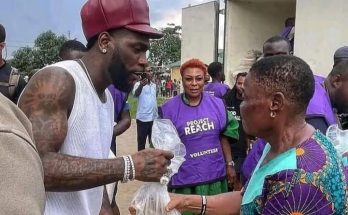By Yomi Kazeem
Typically, in Nigeria’s predominantly Muslim north, discussing personal and marital issues, like sex and domestic violence, is seen as going against the grain. The conservative nature of Islam and an unspoken requirement for women to be fully submissive to their husbands often means that whatever personal issues are had are suppressed. But an Instagram page is changing that.
Ziya’atulhaqq Usman Tahir, 27, who lives in the northern state of Bauchi, has unwittingly provided women in the region with her Instagram page, @fatibolady, as a platform to discuss sensitive personal issues.
While Instagram in Nigeria, like pretty much everywhere else in the world, has been a favorite of selfie fans, fashionistas and celebrities, the Fatibolady page has been innovative in its use of relatively long-form text to reach her fan base and users. Starting out with an innocent post about a friend’s issues in the hope of receiving advice from her followers, the page has morphed into an agony aunt platform as Tahir now receives tens of anonymous emails daily from women seeking help and personal advice.
Tahir posts such problems daily and seeks responses from her followers. In more sensitive cases, she privately refers some emails to qualified law and mental health experts.
There is ample proof that many in the region need platforms like Tahir’s. The page has gained 50,000 followers and each posts generates significant engagement. Suppressing some of the common personal problems discussed on the page can lead to depression and even though Tahir did not exactly plan for this, she is focused on riding the wave. A blog is in the works and she hopes to gain enough traction to start a TV show someday.
In Nigeria, issues like domestic violence are often dismissed with levity as they are regarded as a ‘personal matter’ to be managed between a couple. Similarly, cultural ideologies suggest that women are to tolerate marital issues rather than seek counseling or help. With Tahir’s Instagram page, the tide might be slowly turning. “I don’t think bottling up your problem helps,” Tahir told BuzzFeed News. “I think people should talk about their problems.”
www.qz.com



